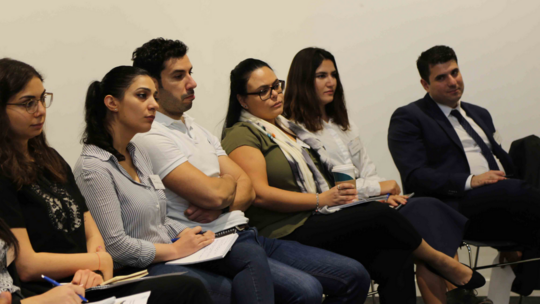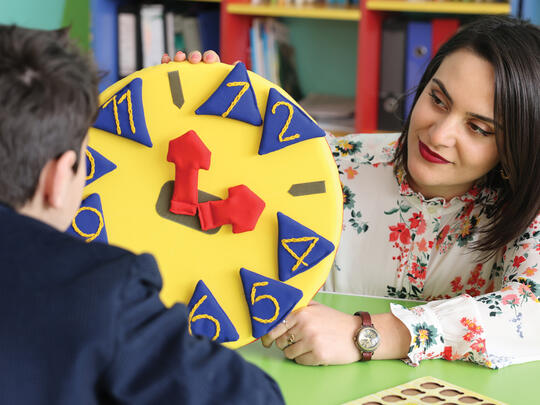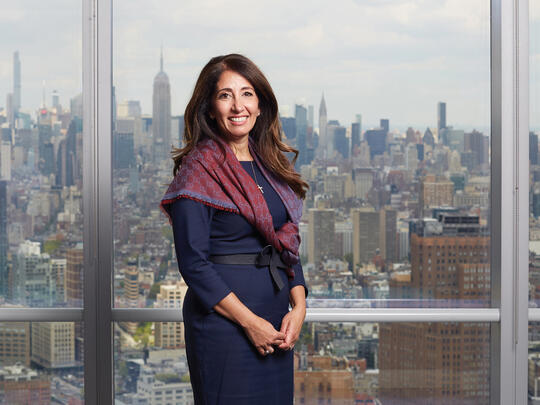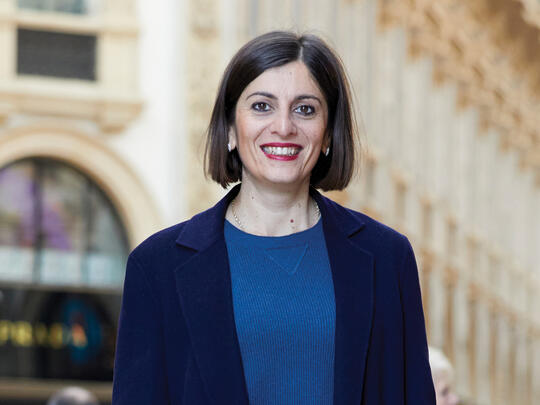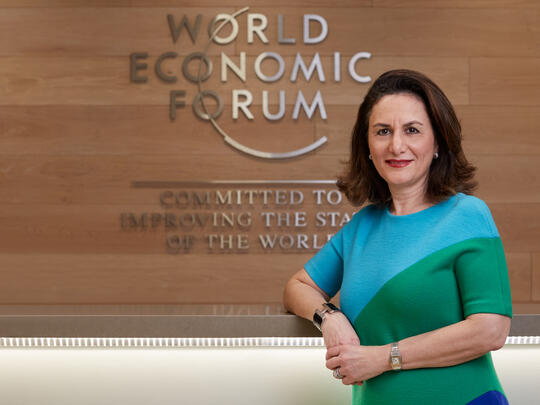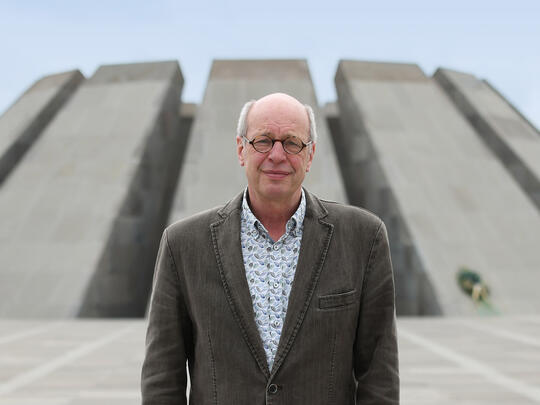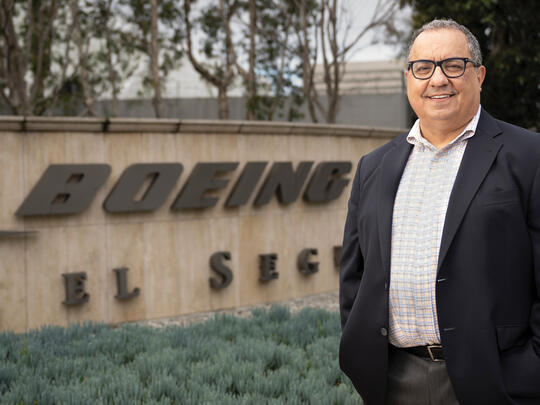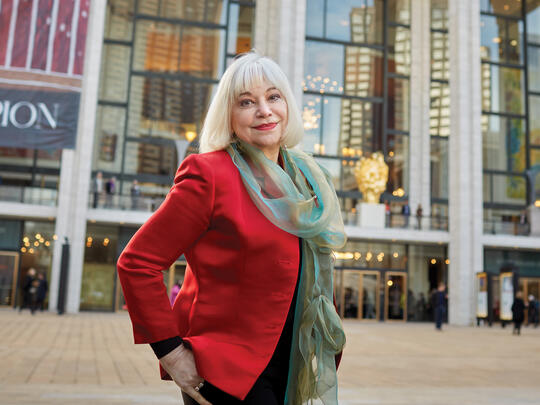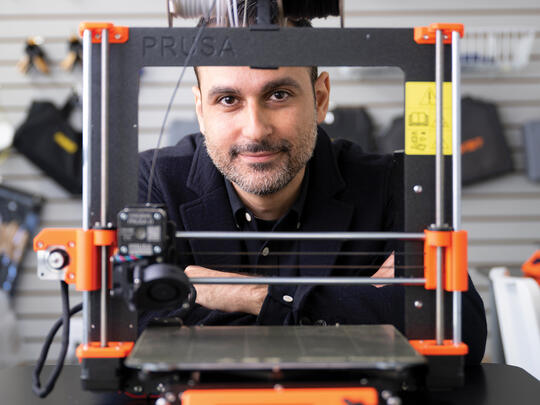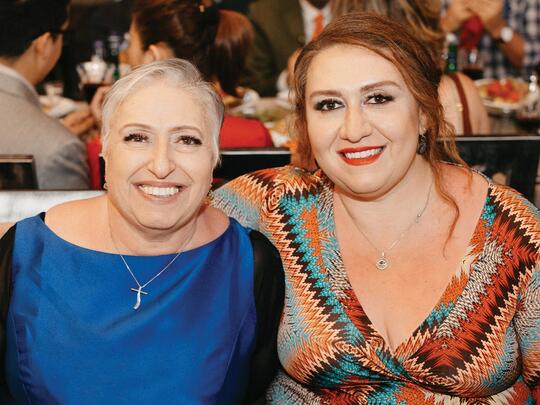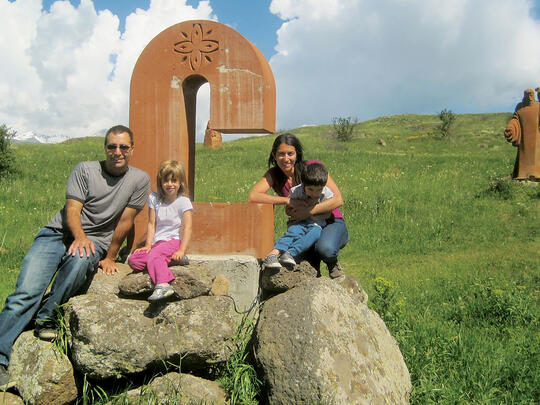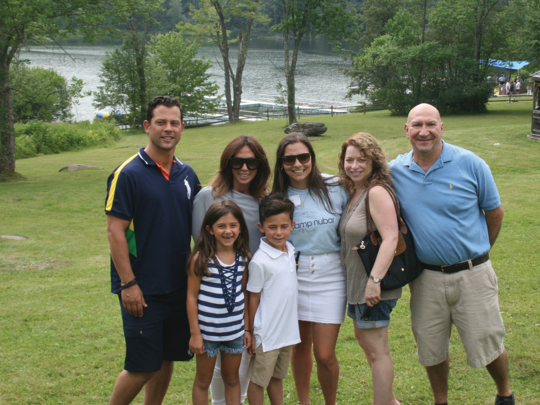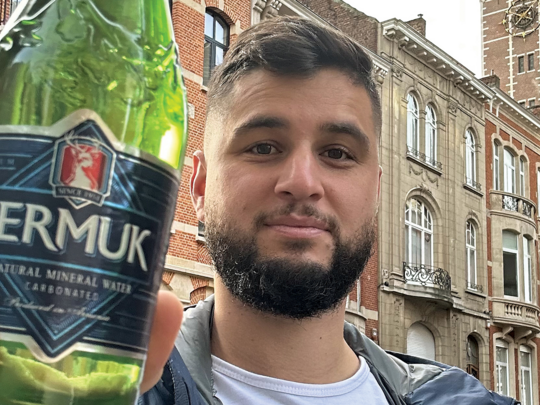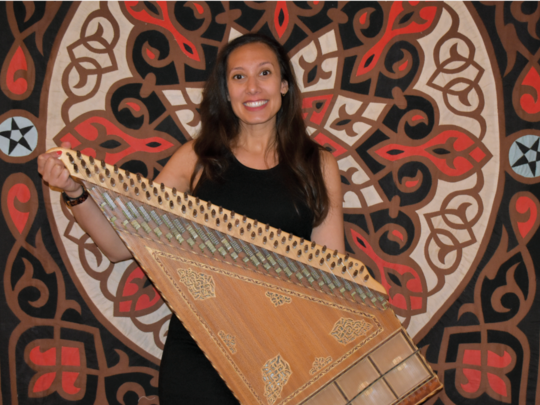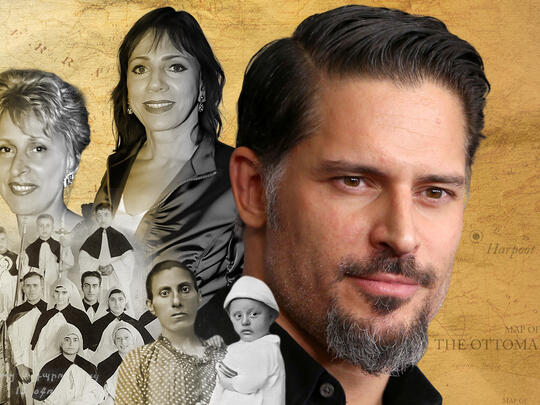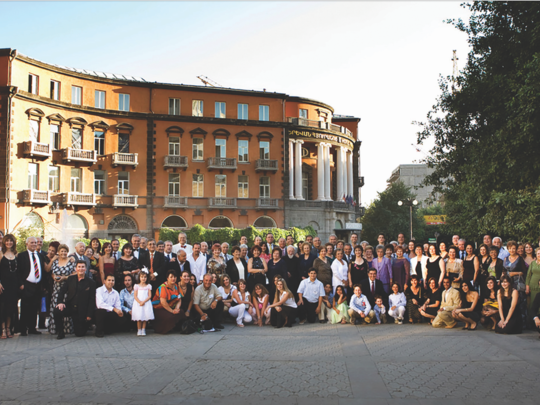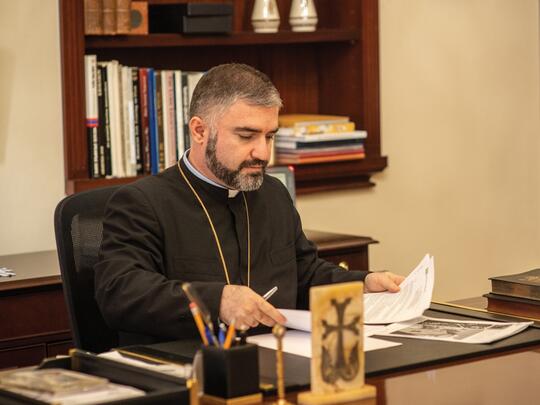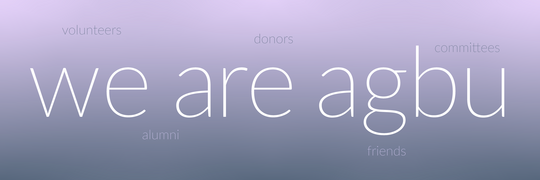
Empowering through Mentorship
Tania Eojourian
The strongest asset of AGBU for me, is the fact that it is one of the oldest non-profit organization offering astonishing opportunities to restructure the future of Armenia by bringing together every one of us that live in the Diaspora to contribute towards a better tomorrow for Armenia.
Tania Eojourian is an alumnus of the AGBU Goris Leadership Development Program. She has also been an active member of the AGBU Young Professionals in Cyprus and recently, she took part in the AGBU Business Mentors Program as a mentor for women entrepreneurs in Armenia.
How and when did you first get involved with AGBU and why were you drawn to the organization?
My involvement with AGBU first started in 2018, when I was approached by a friend who recommended me to become a member of the AGBU Young Professionals in Nicosia, Cyprus. I was so happy that I was approached amongst so many other candidates and wanted to become part of this “family” that has such a rich history. I was committed to try my best and make a difference in a country that has no more than 3,000 Armenian citizens. In 2019 I held the position of Secretary, a position that made me become more involved in the day-to-day life of AGBU. As an Armenian born in Cyprus, with ancestors who have survived the Armenian Genocide of 1915, my aim was not only to promote my Armenian identity, heritage and culture but also to offer my skills and knowledge as a lawyer and as a young professional through social, professional, and volunteer events in Cyprus but also in Armenia. Being part of the AGBU Young Professionals was an eye opener for me. It helped me connect with my roots and with other young Armenians, and eventually it offered me the opportunity to take part in the Goriz Leadership Development Program, which was the beginning of a wonderful social and intellectual journey.
Indeed, in 2019, you took part in the AGBU Goriz Leadership Development Program. Could you please describe how the program contributed to your professional and/or personal development?
The program was a once in a lifetime experience for me. It gave me the opportunity to travel to Brussels and Yerevan and meet with other Armenian professionals from all over the world as well as with the people behind the program who shared their passion and excitement. The first seminar, held in Brussels, focused on positive framing. This helped me improve my technical skills, like planning and project management, and it helped me reflect on the activities that energize me. Reframing was also important for me as it helped me shift my mindset and strengthen my awareness. The second seminar, held in Yerevan, helped me develop strategies to make me feel more comfortable to face my fears and take more risks both as a person and as a professional. It taught me how to step out of my comfort zone and eventually learn to live without it. This has given me the strength to take more risks and pursue my dreams, that of opening my own law firm in Cyprus. Another important thing I learned from the program was that “life is more rewarding when you are growing.” These words were written in one of the module brochures we received and it made a big impression on me at the time as this helped me change my perspective toward life. Another lesson it taught me was that of being able to identify my limits and help build trust, develop network strategically, forge a close-knit community and become a sponsor in helping make my vision a reality. This helped me build my own network at work. Through the program, I also learned to identify my source of energy and the activities that steal my energy. I learned to feel comfortable towards the person standing opposite me, who was initially a “stranger,” by lowering my shield and inviting him/her in my space. This has helped me control my energy, behavior, words and actions, thus making me more successful in all areas of my life, whether it was work related, or at home or even towards myself.
In 2021, through the EUDiF Capacity Development Lab initiative, you also participated in the AGBU Business Mentors Program and conducted mentorship sessions with women entrepreneurs in Armenia. Could you share your experience with the Program as a mentor?
Before I participated in the AGBU Business Mentors Program, I volunteered to participate in the AGBU ANI Adult Learning Program, an initiative aimed at improving the knowledge of English among English learners in Armenia through 12 weekly sessions with Armenians from the Diaspora. I was very pleased with the positive outcome and the feedback from AGBU and from the beneficiary in Armenia. Considering the above, I was offered to become a diaspora expert, through the EUDiF Capacity Development Lab initiative, to participate in the AGBU Business Mentors Program. During my visit to Armenia, in July 2021, I took part in the AGBU mentorship program for women entrepreneurs as one of the key speakers presenting the “Introduction to the Armenia-EU trading system." The objective of this mentorship session was to introduce the Armenia-EU Trading System to the women entrepreneurs and guide them through the legal ways to export their goods from Armenia to the EU. The experience was amazing, as I love travelling to Armenia and it was more amazing getting to know these women entrepreneurs full of passion, energy and big goals. This program shows the importance of involving women in the economic development of Armenia and of building a strong network of women entrepreneurs across Armenia. I had the opportunity to see the creations of some of the women entrepreneurs and their work was indeed very remarkable. Also as a mentor, I also gain new perspectives and the mentorship turned out to benefit me as well as the mentees.
As part of the partnership between AGBU Europe and EUDiF, you recently drafted a guidebook for the participants of the AGBU Business Mentors program on Armenia-EU Trading Regulations & Procedures. Could you describe the objectives of this guidebook and how it is meant to respond to the needs of women entrepreneurs in Armenia?
The objectives of this guidebook is to provide key information that is needed to access the EU market, by providing step-by-step procedures for exporting various products from Armenia to the EU, such as recycled paper, decorations, jewelry or bags, by presenting the current agreements that are in place between Armenia and the EU as well as important requirements to consider when trading, such as the level of duty rates and other applicable levies on import and export; import and export formalities and other non-tariff requirements; packaging, marking and labelling requirements as they apply to a product, process, or production methods. It also includes funding support options (for example when you want to franchise a product), steps to develop industry value chains, specifications on the stages and regulations for trade and export, and guidelines on how to trade on existing online platform and e-commerce in general. The guidebook focuses on the products produced and created by the women entrepreneurs in Armenia, with specific chapters per product. It breaks down the basics an entrepreneur needs to know before entering the EU market.
As a young Armenian professional from Cyprus, why is it important for you to contribute to the support of Armenia and what would be your advice to other diaspora Armenians?
Although there are many programs in place to help Armenia by providing better work opportunities, strengthening the country's fiscal governance or improving the participation of Armenia's civil society in the democratic decision-making process, entrepreneurship plays a key role in the economy. It is vital for each and every one of us to support the creativity and innovation of these female entrepreneurs and support them in shifting their ideas into actions and eventually make their creations come to life. With the significant increase in women-owned businesses, it was an achievement for me to be able to share my knowledge and contribute as much as possible to these female entrepreneurs who also use their knowledge, resources, and time to create their products and create new business opportunities. We, being the Armenian community worldwide, ought to have a high level of commitment, and bring Armenia to a level of standards that would benefit them, the same way it benefits many of us who live in the Diaspora. Any contribution for the support of Armenia and the engagement in different projects to restore either the social, economic, technological, educational, and business-related weaknesses is important. It is important to talk with local Armenian people and learn about their standard of living and the difficulties they are facing. It is important for the Armenians in the Diaspora to educate themselves about the different troubles Armenians are facing that are generally overlooked. We, having the skills and knowledge, can identify, appraise, utilize and improve the existing technologies and production techniques or propose to develop new ones to modernize the production processes and venture into new innovative production activities in Armenia.
According to you, what are the strongest assets of AGBU and which programs would you like to see developed in the future?
The strongest asset of AGBU for me, is the fact that it is one of the oldest non-profit organization offering astonishing opportunities to restructure the future of Armenia by bringing together every one of us that live in the Diaspora to contribute towards a better tomorrow for Armenia. All the AGBU programs that I took part in were an amazing experience for me and I wish they all continue to take place and expand in the future. One of the programs that I would like to see develop is the partnership with ANI, a program founded in September 2015 by two Australian- Armenian siblings which aim is to help the English-learners in Armenia improve their English proficiency by connecting them with English-speakers in the diaspora. The other program that I would like to see develop is AGBU EmpowerHer, a multi-faced, interdisciplinary program aimed to advance socio-economic independence for women in Armenia and improve their well-being, through professional development, entrepreneurism, and civil society leadership.
I wish to acknowledge my appreciation to everyone who was involved in all the AGBU programs that I attended, for their time, their support and motivation. I also want to say a big thank you to everyone who was involved in the completion of the guidebook The Armenia-EU Trading Regulations & Procedures.


